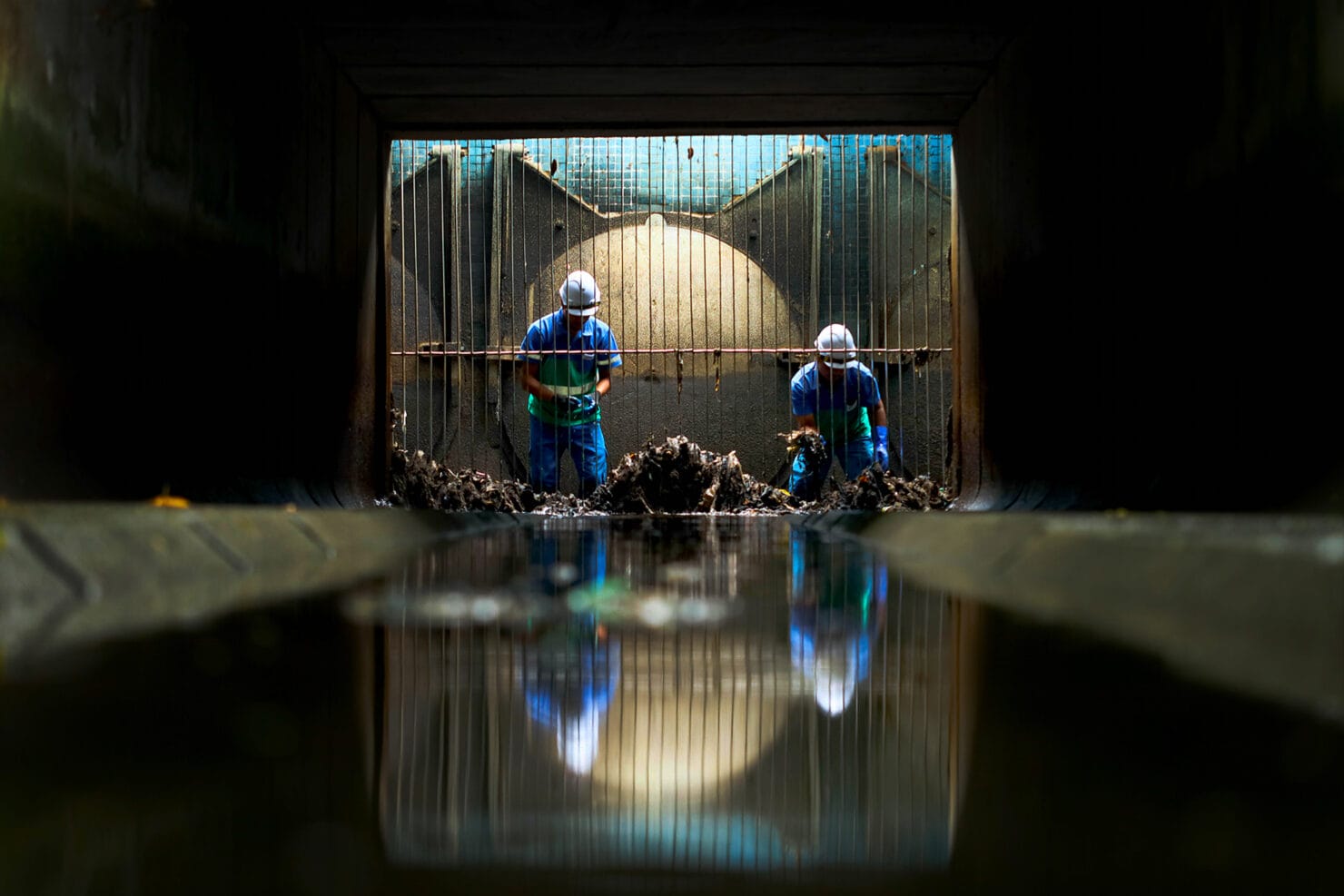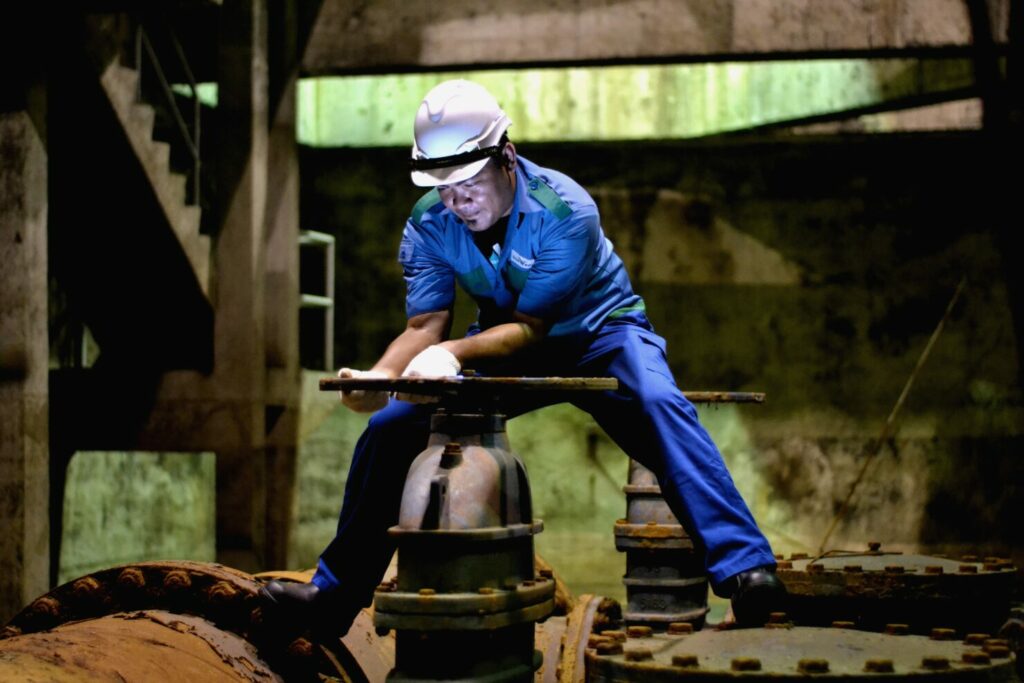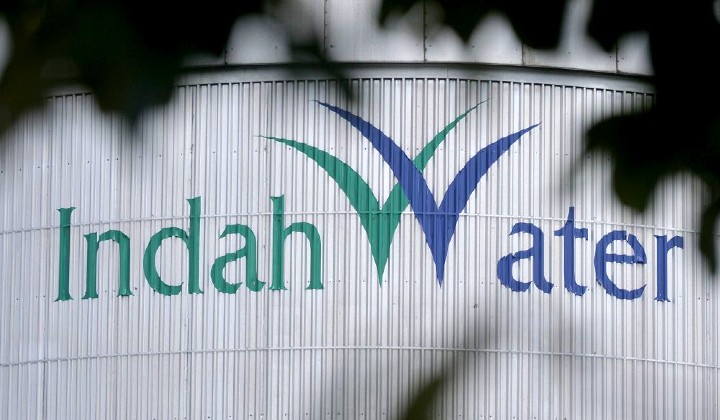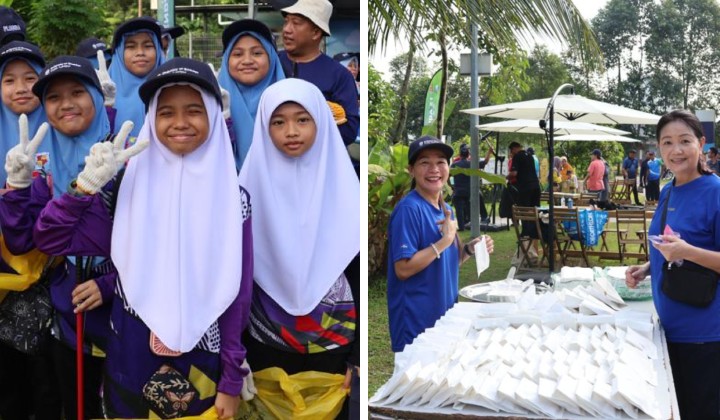Unlocking The Secret Of Sustainable Sewage: From Waste To Wealth!
Sewage treatment may not be the most glamorous topic, but it’s a critical aspect of urban living.

Subscribe to our FREE Newsletter, or Telegram and WhatsApp channels for the latest stories and updates.
Water is essential for life. We drink it, wash with it and use it for all sorts of things that enable us to live more fluid lives in today’s world. But have you ever wondered what happens to the water that goes down your kitchen sink or flushed down your toilet?
Well, it doesn’t just vanish into thin air. Water is a valuable and finite resource we simply cannot afford to waste. Therefore it must be managed wisely.
This is where Indah Water comes into the picture!
Indah Water Konsortium (IWK) Sdn Bhd is Malaysia’s national sewerage company, responsible for providing sewerage services to over a population equivalent to 30 million people across the country. IWK’s role in treating wastewater is nothing short of impressive.
Through a meticulous process, they take raw sewage and turn it into safe, clean water before discharging it to the environment.
Sewage treatment may not be the most glamorous topic, but it’s a critical aspect of urban living.
Why is this important? Well, it’s because Malaysia produces an estimated 6,000 million litres per day (MLD) of sewage or wastewater in our sewage treatment plants (STPs) before being safely reintroduced into the natural water cycle, every day. That’s enough to fill around 2,000 Olympic-sized swimming pools or about 1.5 trillion water bottles!
All this wastewater needs to be treated before it can be released back into our natural waterways, i.e. lakes, rivers, seas and oceans, and before we eventually use it again when we turn on the taps.

It’s IWK’s mission to ensure that the wastewater we generate from our homes, businesses and industries is safely and efficiently treated so that it does not harm the environment or public health.
But that’s not all that they do. As part of the company’s green and sustainability initiatives, IWK also endeavours to turn waste into wealth in order to supplement its income stream, generate cost savings and ensure that Malaysians are able to enjoy a prosperous, clean and healthy living today and in the future.
Waste-to-Wealth
In order to realise this vision, IWK is committed to implementing a sustainable resource reintegration approach, where wastewater and other byproducts are transformed into valuable resources that can be used to enrich our lives, boost the economy and preserve the environment.
IWK’s efforts encompass three vital components that contribute towards safeguarding our clean water resources and enlarging the nation’s circular economy practices:
Wastewater Treatment
IWK’s core function is to collect and treat wastewater from our domestic, commercial, and industrial sources.
For nearly three decades of experience under its belt, the Company operates and maintains close to 7,500 STPs, around 20,000km of sewer lines, as well as, some 1.4 million Individual Septic Tanks (IST) nationwide.
Various methods are used to treat wastewater in order to remove pollutants and harmful substances contained in it through physical, chemical, and biological processes before it is safe to be discharged into the environment.
Compliance with strict environmental regulations ensures that our water resources remain safe and clean.
Wastewater treatment and management are highly regulated in Malaysia and must abide by the specific laws and regulations including the Environmental Quality Act 1974 and Environmental Quality (Sewage) Regulation 2009 which legislates and restricts the discharge of waste into our environment and ensures that our clean water resources remain safe for use.
In 2022, IWK achieved 97.4% compliance with the environmental regulatory standard of effluent discharge.
Water Recycling
Treating wastewater results in the creation of bioeffluent, which is a fancy way of calling treated, non-potable water that’s not clean enough to drink.
Bioeffluent is a valuable resource that can be reclaimed, recycled and repurposed for multiple uses, including serving as an alternative source of water in our factories and various other industries for non-potable use.
Using recycled bioeffluent for non-potable use helps reduce the demand for our clean water resources and greatly helps conserve and preserve our ecosystem.
IWK is collaborating with water operators to produce and supply reclaimed water to industrial areas in the Klang Valley, Melaka and Penang in order to reduce the amount of potable clean water used throughout various stages of manufacturing and production, such as processing, washing, diluting, cooling and more.
Through these collaborative efforts, IWK has the potential to recycle approximately 300 MLD of bioeffluent.
For some of IWK’s large-scale plants, bioeffluent recycling activities have been implemented within the STPs to reduce potable water usage, preserve local water resources and minimise the overall environmental impact.
In 2022, IWK successfully utilised 27MLD of bioeffluent for its internal recycling initiative.
Instead of releasing 27MLD of bioeffluent into the environment, IWK treated it to a standard suitable for internal purposes and reused it across various applications within IWK’s own plants.
Resource Recovery
Wastewater treatment also results in the production of biosolids that contain valuable nutrients, energy and inert material that can be harnessed and commercialised.
On average, IWK produces about 80,000 tonnes per year of biosolids that can be converted for their respective value instead of being disposed of in landfills.
IWK has been collaborating with the Department of Sewerage Services (JPP), Koperasi Kebuniti Selangor Berhad (KOBUNITI), Universiti Teknologi MARA (UiTM) and Universiti Putra Malaysia (UPM) to recover and transform the nutrients found in biosolids into organic fertilisers for landscape and non-food plants.
The use of biosolids as fertiliser not only reduces waste but also provides a cost-effective and sustainable alternative to synthetic fertilisers.
The company’s R&D unit is also exploring the potential to produce biochar from biosolids and is currently in the process of getting the correct formula before considering commercialisation as an opportunity.
Biochar is a charcoal-like substance that can be made from the biosolids recovered from wastewater treatment processes.
In addition to the reuse of biosolids, IWK has also taken steps to generate renewable energy from the wastewater treatment process – biogas.
The biogas produced from the water treatment process is used as an alternative source of renewable energy, generating electricity that can power IWK’s sewage treatment plants. The company generates 5MWh of energy a day for self-consumption.
By implementing this approach, IWK not only demonstrates its commitment towards sustainability, and innovation but also ensures that Malaysians can enjoy a brighter and greener future ahead.
A Greener Tomorrow
“We want to maximise water reuse options and resource recovery efforts to protect our clean water sources from excessive stress, all while enhancing our sustainability practices for the benefit of our community and the environment,” said IWK’s Chief Executive Officer, Narendran Maniam.
He explained that there’s huge potential for the country to harness the potential of water recycling and resource reuse to expand our circular economy so that nothing goes to waste.
IWK remains committed to its waste-to-wealth initiatives to reduce waste, minimise our environmental footprint, and optimise resource utilisation, aligning with the United Nations Sustainable Development Goals (SDGs) for a sustainable wastewater management system.
IWK’s Chief Executive Officer Narendran Maniam.
To learn more about Indah Water and its strategy for sustainability, visit their website or follow them on all its social media platforms.
Share your thoughts with us via TRP’s Facebook, Twitter, Instagram, or Threads.
Typing out trending topics and walking the fine line between deep and dumb.





